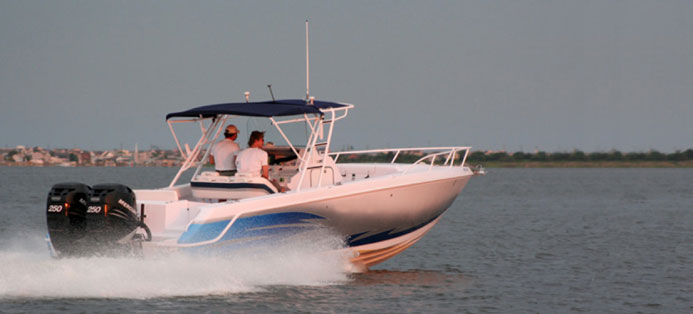Be a Better Boater

There are over 170,000 registered boats in New Jersey—imagine the positive impact we could have on the environment if we all learned more about boating responsibly. From preparing a vessel for another season on New Jersey’s waterways to storing it in the offseason, boaters have many options for taking small steps to protect the environment they depend upon for their enjoyment of boating, fishing, and other water-based recreation activities. Warm up to responsible boating this winter by following these five tips for winterizing your vessel:
- Go the extra mile. Green marine businesses take extra steps to protect our waterways. Show your support by shopping at environment-friendly marine supply shops and use New Jersey’s Clean Marinas to slip or store your boat.
- Want a clean, green machine come spring? Before pressure washing your boat, position it over a washpad or tarp to collect debris present in wastewater. Remove and recycle zinc and aluminum anodes, which contain lead, and use environmentally friendly soaps when washing to reduce contaminants like nitrates and phosphorus.
- Use non-toxic antifreeze for all your winterization needs. Fill tanks to no more than 85-90% of capacity. This helps reduce flammable flame buildup, condensation and fuel leaking out the vent on warm days. Also, use fuel with at least the recommended octane for your vessel or higher and add a stabilizer.
- Protect your boat and the environment by considering reusable canvas or multi-use plastic covers instead of shrink wrap
- When winterizing outboards, place absorbent pads beneath the exhaust to catch any oil in the exhaust water.
More helpful tips for winterizing your vessel
- Have a boat with an outboard motor? If you’re keeping it in the water during freezing temperatures, keep the engine vertical to allow water in the cooling system to drain.
- If you’re winterizing a fuel-injected engine yourself, remove the fuel filter, pour some of the gas back into the tank, fill filter with fogging oil and replace. You can then run the engine and the fogging oil will be pumped through the fuel system.
For more information about responsible recreation on the water, check out the following resources:
- New Jersey Clean Marina Program
- Marina Industry Enhancement Program
- New Jersey Fish and Wildlife
- Marine Trades Association of New Jersey
- New Jersey Boat Ramps
- New Jersey Boater’s Resource Directory
Contact: Michael Danko